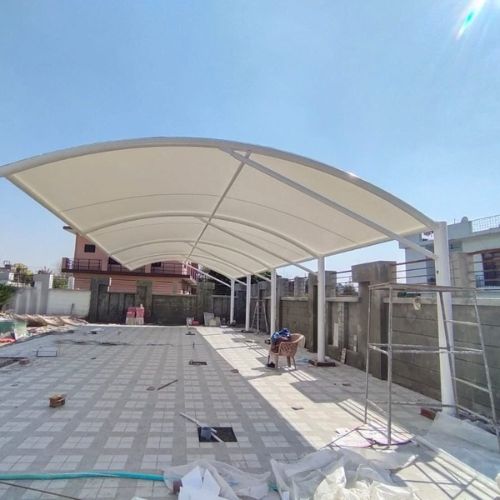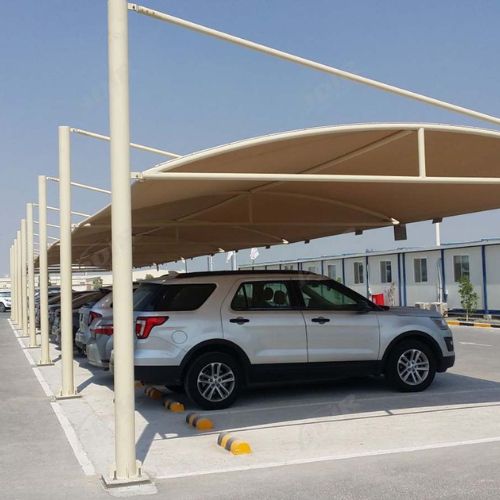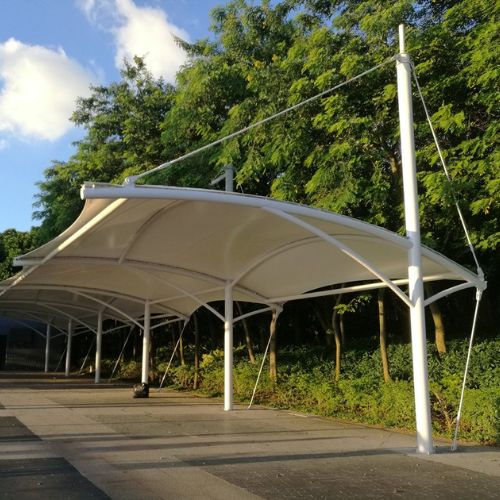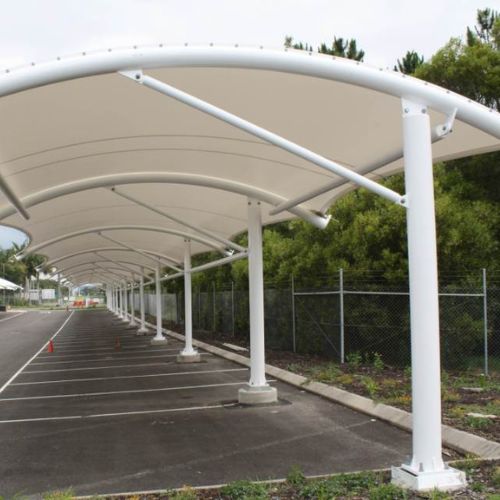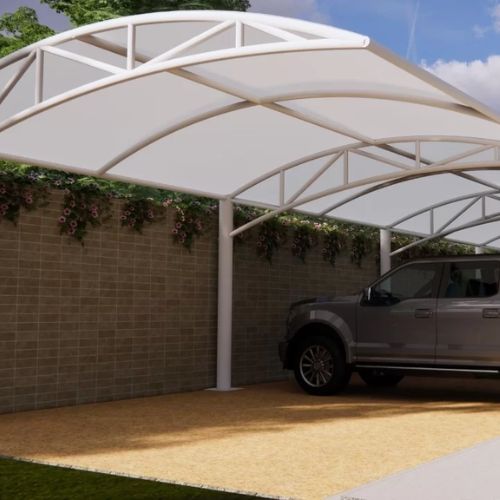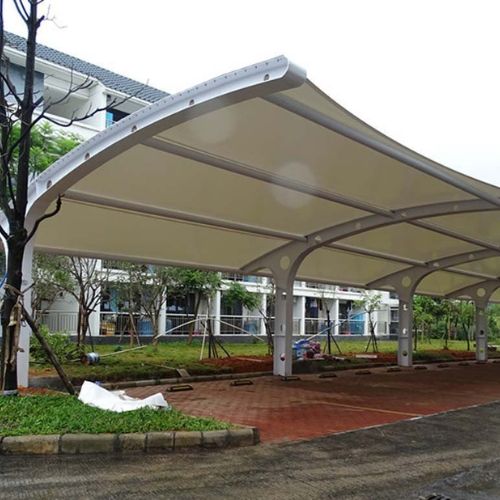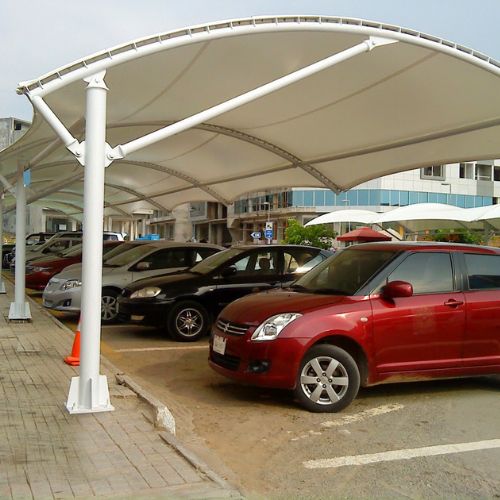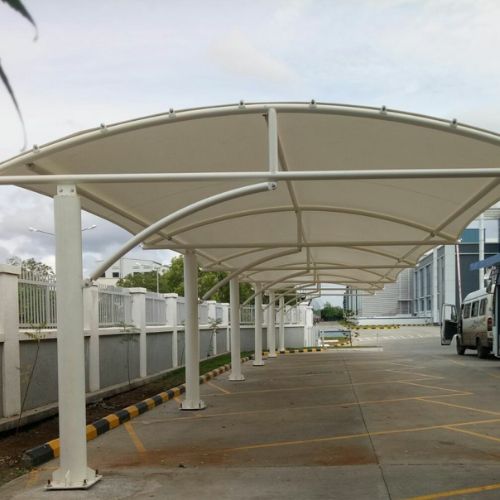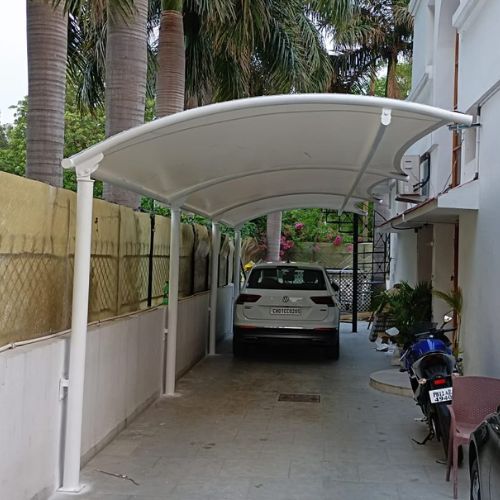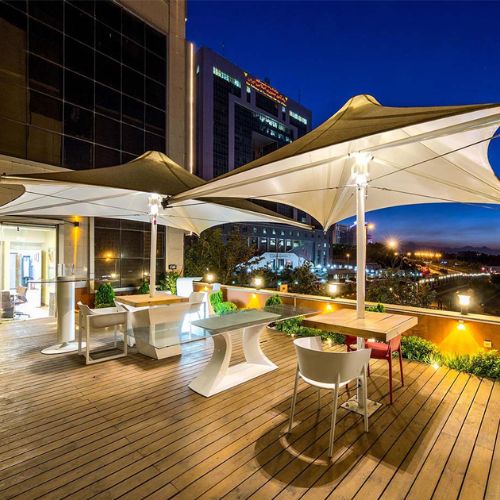We Provide High Strength, World‐Class Premium Quality Car Parking Shed
Heavy Duty Tensile Car Parking Structures in Amritsar
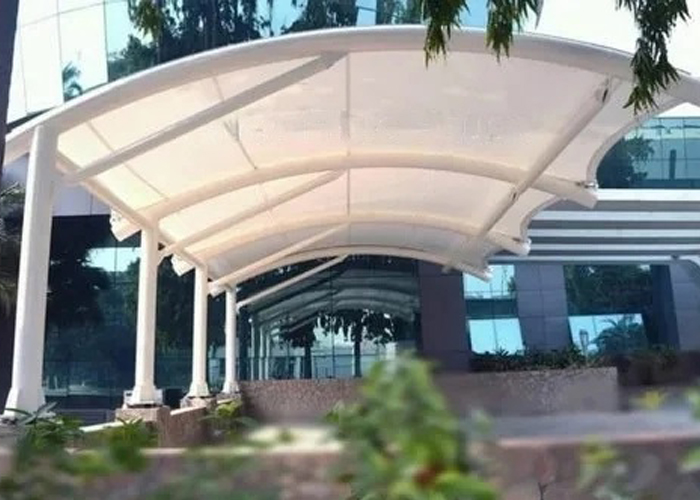
Parking spaces are a necessity in today’s world, whether for homes, businesses, or public areas. Traditional parking structures often involve complex construction, high costs, and maintenance issues. This is where Heavy-Duty Tensile Car Parking Structures in Amritsar come in as an innovative and efficient solution. In this blog post, we will explore what these structures are, their benefits, applications, and why they are becoming increasingly popular.
What Are Heavy Duty Tensile Car Parking Structures?
Heavy-Duty Tensile Car Parking Structures in Amritsar are a type of shelter designed to protect parked cars from the elements. They are made using high-strength, flexible materials that are stretched and held in place by a system of cables and supports. Think of a large, sturdy tent designed specifically for parking cars. The materials used for these structures are usually PVC-coated polyester or PTFE-coated fiberglass, which are known for their durability and weather resistance.
Benefits of Heavy Duty Tensile Car Parking Structures in Amritsar
Durability and Strength
One of the standout features of Tensile Car Parking Structures is their durability. The materials used are designed to withstand harsh weather conditions like heavy rain, strong winds, and intense sunlight. This means they can last for many years without needing major repairs or replacements. Unlike traditional concrete or metal structures, tensile structures don’t rust or degrade easily, making them a long-term investment.
Cost-Effectiveness
Building a traditional parking structure can be expensive. It involves a lot of materials, labor, and time. Tensile Car Parking Structures, on the other hand, are more affordable. They require fewer materials and less labor to install. Plus, because they are lightweight, they don’t need the heavy foundations that concrete structures require. This significantly reduces construction costs and time.
Aesthetic Appeal
Tensile Car Parking Structures are not just functional; they are also visually appealing. Their modern, sleek design can enhance the look of any parking area. They come in various shapes and sizes, allowing for creative and attractive architectural designs. This makes them a popular choice for places that want to maintain a stylish appearance, like shopping malls, office complexes, and upscale residential areas.
Versatility and Flexibility
These structures are incredibly versatile. They can be customized to fit any space and can cover parking areas of all sizes, from small residential parking spots to large commercial parking lots. Because they are modular, they can be expanded or modified as needed. This flexibility makes them suitable for a wide range of applications.
Environmental Benefits
Tensile structures are more environmentally friendly compared to traditional building methods. The materials used can often be recycled, reducing waste. The construction process itself generates less waste and has a smaller environmental footprint. Additionally, these structures allow natural light to penetrate, reducing the need for artificial lighting during the day and saving energy.
Applications of Heavy Duty Tensile Car Parking Structures in Amritsar
Commercial Parking Lots
Businesses need to provide secure and attractive parking for their customers and employees. Heavy Duty Tensile Car Parking Structures are perfect for this. They offer protection from the elements and enhance the overall look of the parking area, making it more inviting for visitors. Shopping malls, office buildings, and airports are prime examples where these structures can be beneficial.
Residential Complexes
In residential areas, especially those with limited space, Tensile Car Parking Structures provide an excellent solution. They protect residents’ vehicles from the weather and can be designed to blend in with the surrounding architecture, adding to the aesthetic appeal of the complex.
Public Parking Areas
Public spaces, like parks and transportation hubs, often require extensive parking facilities. Tensile structures are ideal for these areas because they are quick to install, cost-effective, and provide the necessary protection for vehicles. They also improve the overall look of public parking areas, making them more user-friendly.
Event Venues
Event venues, such as stadiums and fairgrounds, often need temporary or permanent parking solutions. Tensile Structures are perfect for this because they can be quickly set up and taken down. They provide shade and protection for visitors’ vehicles, enhancing the overall experience of attending events.
Why Are Heavy Duty Tensile Car Parking Structures in Amritsar Gaining Popularity?
Advancements in Construction Technology
The materials and technology used in Tensile Structures have advanced significantly in recent years. This has made them more reliable and accessible. The improved performance and durability of these materials have driven their popularity, as they now offer superior benefits compared to older methods.
Growing Awareness of Sustainability
As more people become aware of environmental issues, there is a growing demand for sustainable building solutions. Heavy Duty Tensile Car Parking Structures in Amritsar align with these sustainability goals. They use recyclable materials, generate less construction waste, and save energy by allowing natural light to filter through.
Economic Benefits
The economic advantages of Tensile Structures cannot be overstated. Lower initial construction costs, reduced maintenance expenses, and the ability to quickly adapt or expand these structures make them a smart financial choice for many businesses and municipalities.
Modern Architectural Trends
Modern architecture favors sleek, minimalist designs. Tensile Structures fit perfectly into this trend, offering clean lines and adaptable forms. Their aesthetic appeal is a significant factor in their increasing adoption, especially in urban and commercial settings.
Conclusion
Heavy-duty Tensile Car Parking Structures in Amritsar are a forward-thinking solution to modern parking needs. They combine durability, cost-effectiveness, aesthetic appeal, versatility, and environmental benefits, making them an excellent choice for a wide range of applications. As technology continues to advance and sustainability becomes more critical, these structures are likely to become even more popular.
By choosing Heavy-Duty Tensile Car Parking Structures in Amritsar, we can improve the functionality and appearance of our parking areas while also contributing to a more sustainable future. Whether for residential, commercial, or public use, these structures offer a practical and stylish solution to the challenges of modern parking.
Facebook
WhatsApp
Twitter
LinkedIn
Pinterest
Cost-Effective
Contact Info
- Batala Rd, Opp. Navjot Public School, Bharat Nagar, Amritsar, Punjab 143001
- +91-098140-71323
- info@carparkingshed.com
OR

